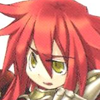|
|
Post by Ryo on Jan 9, 2015 3:20:17 GMT -5
Questing
The key to building any good Hero is adventure, and the easiest way to get some adventure in is through questing. There's always the good old "Get me 10 Wolf Pelts" or "Slay 50 Beetles" or even "Go find this creepy dungeon and get me this thing from the bottom of it". Those are all classics, but there's also some other not so typical ones like "Help me investigate these disappearances" or "A siege of Phantasms is coming!". Ultimately, Questing is what happens when something has to be done about something and you are the right person for the job (hopefully).
So, how do you go about a quest? First, you do a sign up post. This reflects the recruitment process of getting help for the quest. This is akin to being the NPC with the Exclamation Point over your head waiting for the Player to talk to you. Use the indicated Quest Sign Up Template and fill out the information so you can let people know what to expect. Once you've done that, you wait until you've got enough people for the quest (be it how many you want or just how many showed up before you said screw it). After that, you post up the actual thread and you begin the quest!
The player who posted the quest sign up will be the one running the quest and handling any possible NPCs or mook enemies you might encounter. The exception to this is for canon roles that are not filled or bosses, who are operated by the staff. If you should need one of these for a quest, PM the staff and they will do what is needed. This is to allow the smooth flow of quests overall by not having to constantly wait for a staff member to post. However, we will be watching so don't try to cheat the system. Any combat to be done in a quest will use the combat system, and mook enemies will use an ability at least once a turn if they are able. Mooks aren't going to just weakly flail at you and let you murder them; they'll fight for their lives. To make combats against mobs more fair though, when there are more than 2 enemies each mook will only have one action a turn. This is to prevent you from dropping an entire horde of goblins and instantly dropping a player because they all used two attack actions and inflicted 200 damage in one turn. Boss enemies will always have two actions no matter how many mooks there are.
Legends play a little differently. Due to their nature as a final trial for those who would be heroes, and having pre-determined stories, staff will handle all operations regarding non-player aspects of a Legend. Essentially, the role normally filled by the player who posted the quest will be filled by a staff member.
Once a quest is concluded, post in the sign up thread you used to start the quest to indicate that it is completed. A staff member will then distribute the rewards for completing the quest based on the difficulty. Each difficulty has a fixed gold and XP reward you will receive based on difficulty, which are listed below:
Easy - Good for new characters - 25 Gold & XP
Normal - Good for characters with some progress, certain canon roles may be able to manage this right out of the gate - 50 Gold & XP
Hard - Good for characters with a good amount of progress, those with high Tier classes and decent weapons/abilities can succeed - 100 Gold & XP
Lunatic - Good for characters with a high amount of progress, those with multiple Classes and at least one Tier 3 weapon or ability can succeed - 200 Gold & XP
Legend - End-Game Difficulty, you will most likely want to be maxed out in your classes and at least have a Tier 4 weapon or ability - 400 Gold & XP
Note those are just rewards for difficulty, not counting what you get just from posting or other rewards based on the actual quest itself. A few other notes for questing:
- One Combat Quest per Character. Just in case you do something horrendously stupid or trigger a series of events that might render you incapable of completing a parallel combat quest.
- Two Total Quests per Character. This is not counting special events, which are exceptions to both quest count limitations.
- You need at least one other member with you. Self-explanitory, but we don't want people questing with themselves.
- You'll need to hit at least two pages of posts for a quest to count. This is to make sure you actually do something and have meaningful content rather than resolving it in one round.
|
|
|
|
Post by Ryo on Jan 20, 2015 13:01:04 GMT -5
WHAT IS IN A QUEST? Or, The Dos and Don'ts of Questing.
Some of you may be concerned about the idea of other players running quests. "What if they make it too easy/too hard for its difficulty? What if they don't know what to do?" Some of you may have ideas for quests yourself, but have no idea how to go about it. Here's some helpful tips and an overall guide on how to do a quest. I can and probably will add to this list as I think of things or questions are raised so check back often if you enjoy questing.
- Keep the difficulty in mind when figuring out your challenges. I chose not to use the word "fights" there due to non-combat quests also being an option. Whatever kind of quest you have in mind, never forget the difficulty you're dealing with, and thus keep your challenges appropriate. Easy is meant for new players, so for combat quests keep your enemies to a reasonable number of Tier 1 opponents such as Tier 1 animals/phantasms or Terrans of similar stats. Normal is meant for players with at least a tier 2 weapon or ability and perhaps being tier 2 in their class, so for combat quests keep your enemies to a larger number of Tier 1 opponents and some Tier 2 opponents. Hard is meant for players who have at least a tier 3 weapon or ability and being higher tier in a base class, so for combat quests keep your enemies to a good number of Tier 2 opponents and some Tier 3 opponents. Lunatic difficulty is for players who have multiple classes of at least Tier 2 and at least a tier 3 or 4 weapon and tier 3 ability, so for combat quests keep your enemies to mostly Tier 3 opponents. You can include lower tier enemies in any difficulty of quest in large numbers, but keep in mind smart players may have a way to wipe them all out in one shot when you get to higher difficulties.
- Continuing the above point, for non-combat quests keep your challenges to a similar level. Here are some examples of simple non-combat quests for each respective difficulty. For Easy non-combat quests, make it something such as gathering supplies for a potion in the woods; it is something that might pose a bit of challenge such as trying to find the correct ingredient, or getting caught in some vines, but ultimately any character with a bit of common sense can probably clear it. For Normal non-combat quests, make it something such as investigating a string of robberies in one of the City-States; it is a decent challenge that does pose the risk of failure if not handled correctly, but it is far from impossible. For Hard non-combat quests, make it something such as tracking down the assassin of a prominent noble; it is very easy to fail if you make a mistake and there's a good amount of risk involved, but smart players can succeed if they are careful. For Lunatic non-combat quests, make it something such as navigating the trap-filled temple of doom that nobody has ever looted before; it has very obvious risk and it is extremely easy to fail if you make a mistake, posing a challenge to even the best of adventurers and will require all the wit you can muster.
- Not all combat quests are meat grinders, and not all non-combat quests are entirely peaceful. Conflict is the spice of life, but any spice becomes dull when you're exposed to it enough. A combat quest may involve an investigation section where you have to track down a target before beating the living daylights out of them, and a non-combat quest may involve some more violent approaches to matters. You can have aspects of one quest in the other, but the critical junctures of the quest should reflect the nature of the quest. Don't put a massive boss fight in a non-combat quest, and don't make the "boss fight" in a combat quest a civil discussion.
- Allow other players to be involved in what goes on. The other players involved aren't just meant to be spectators; they are the core of the events going on. Don't make a combat quest just to show off how cool your character is in a fight by having them take down every single enemy; make the enemies realistic. They aren't going to focus on one warrior while getting bombarded for massive damage by a mage. Chances are if they can they will try to make their way to the thing that is hurting them the most. If the warrior tries to intervene, then good for him, that is how it would realistically happen. If an enemy is prone to ganging up on one target, then don't scatter them to 1v1 each member of the party; give them numeric superiority over the target they are attacking.
- Don't try to railroad people. What I mean by this is being so set in the quest going a single way that you absolutely reject alternative approaches. An example would be if you planned out an epic questline of taking down the ring leader of a crime group, but you are a Rogue and so think that you need to stealthily break into their hideout. If you have nothing but face-tanking warriors and explosion mages in your party, they may want to just go through the front door and fight it out. If that is the case, don't automatically railroad the quest into "WE DO THINGS MY WAY"; talk it out in character. If you have the firepower to fight it out head on and you have a majority vote to do it, then go for it.
- Upgrades and new things you acquire for your tracker after beginning a quest cannot be used during the quest. To put it another way, if you start a quest and then after starting it you get a bunch of XP from an event or something and gain a new ability, you cannot use that ability during the quest you are currently in. If you want to make an upgrade and have the power to do so, do it before you first post in the quest.
|
|











